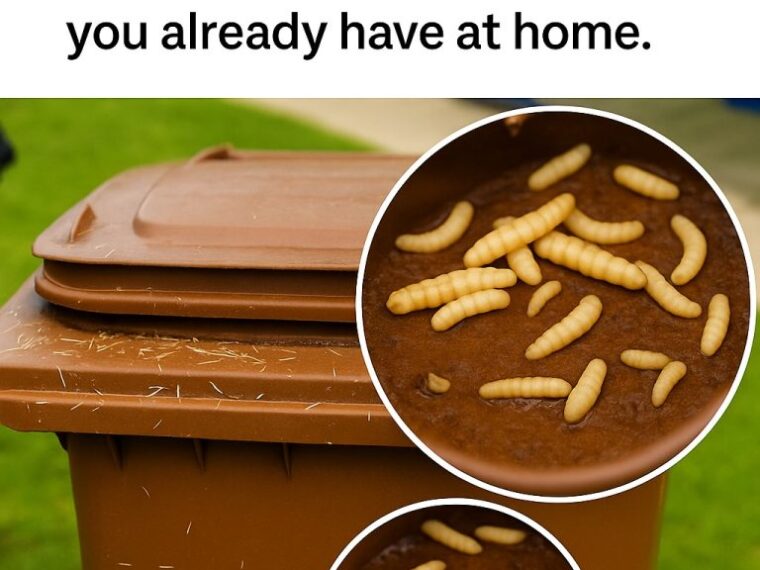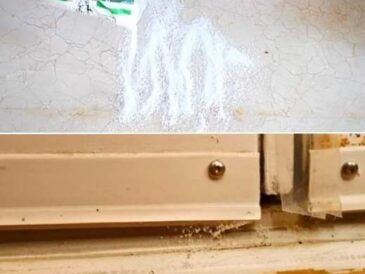Few things are as unpleasant as opening your trash can and discovering it crawling with maggots. The sight alone is enough to make your stomach turn—and the smell doesn’t help either. This problem gets worse during warm months, when heat and humidity speed up food decomposition, attracting flies that quickly turn into a maggot infestation.
Most people immediately reach for baking soda, since it’s a common household remedy for odors and pests. But here’s the truth: while baking soda can reduce some of the smell, it’s not the best solution for killing maggots. If you’ve ever tried it, you know the wriggling mess usually comes back.
So, what works better? Luckily, you probably already have the answer in your kitchen—white vinegar and boiling water.
🚫 Why Baking Soda Doesn’t Solve the Problem
Baking soda is mildly abrasive and has deodorizing qualities, which can temporarily mask odors. It may also dry out maggots a little, but it doesn’t kill them effectively. At best, it slows them down. At worst, it just buys the flies more time to lay new eggs.
This means relying on baking soda alone is like putting a bandage on a wound—it doesn’t fix the root of the issue.
✅ The Real Fix: Boiling Water + Vinegar
If you want to get rid of maggots fast and stop them from coming back, here’s what actually works:
1. Boiling Water
Pour a generous amount of boiling water directly into the trash bin. The heat kills maggots on contact—instantly. No chemicals, no waiting. Just be careful with plastic bins, since very hot water can warp or damage them.
2. White Vinegar Spray
Once the maggots are gone, mix equal parts white vinegar and water in a spray bottle. Use it to thoroughly coat the inside of your bin. Vinegar disinfects, removes odors, and discourages flies from coming back to lay eggs.
👉 Pro tip: Add a few drops of peppermint, eucalyptus, or tea tree essential oil to the mix. These natural oils smell fresh to us but are powerful repellents for flies and other insects.
🧹 Step-by-Step: How to Keep Your Bin Maggot-Free
continue reading in page 2



